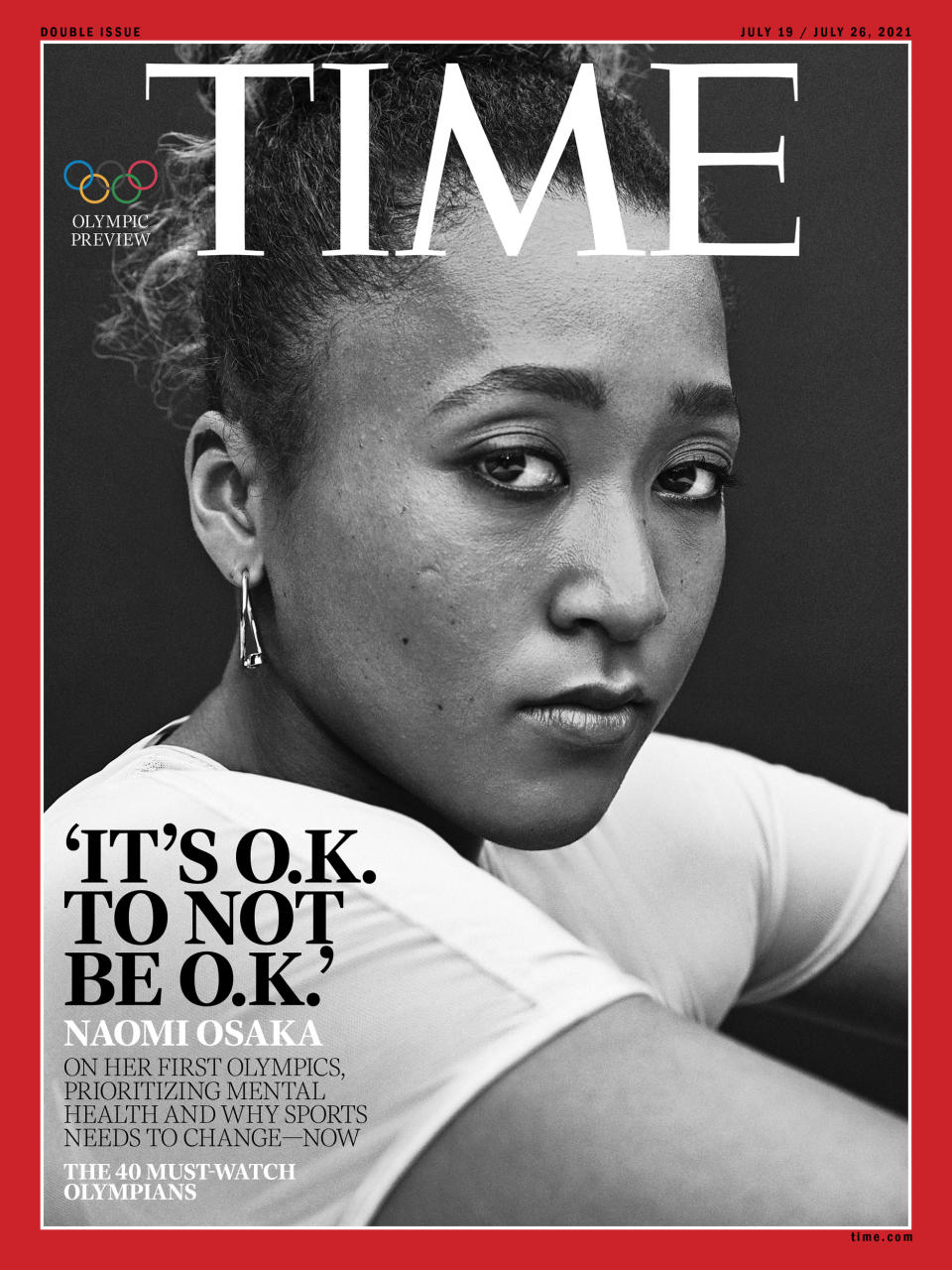Naomi Osaka reveals lessons learned after her withdrawal from French Open
Naomi Osaka is ready to return to the court for the Tokyo Olympics after a mental health break and says that deciding to step away from the French Open helped her learn and grow in new ways.
Osaka, 23, made international headlines in May when she announced she wouldn’t participate in the post-match news conferences during the French Open, later leaving that tournament and withdrawing from Wimbledon. She said in social media posts at the time that she was instead prioritizing her mental health.
Osaka is featured on one of four Time magazine covers for the Tokyo Olympics and wrote an essay further explaining her decision to briefly step away from the game. While she has maintained a good relationship with the media, the press conference format is outdated and needs improvement, the athlete wrote.

“I communicated that I wanted to skip press conferences at Roland Garros to exercise self-care and preservation of my mental health,” Osaka said. “I stand by that. Athletes are humans.”
Osaka said that while she probably should have anticipated the criticism, the last few weeks have helped her grow. The messages she received made it clear that “literally everyone either suffers from issues related to their mental health or knows someone that does," she wrote.
She also suggested that athletes be granted personal days that would allow them a mental health break without risk of sanctions. Osaka was fined $15,000 for missing a press conference after her match at the French Open, with implications that further absences could lead to more severe consequences. This, she writes, is not something that would be normalized in other workplaces.
“In any other line of work, you would be forgiven for taking a personal day here and there, so long as it’s not habitual,” Osaka said. “You wouldn’t have to divulge your most personal symptoms to your employer — there would likely be HR measures protecting at least some level of privacy.”
Still, Osaka said, her time away from the court has left her recharged and ready for the international stage once again. She will be playing for Japan after forfeiting her American citizenship to play for the country where she was born.
While she said she is uncomfortable with the idea of being the face of “athlete mental health,” Osaka also wants to push herself to advocate for what she believes is right.
“I do hope that people can relate and understand it’s OK to not be OK; and it’s OK to talk about it. There are people that can help, and there is usually light at the end of any tunnel,” she said. “Michael Phelps told me that by speaking up, I may have saved a life. If that’s true, then it was all worth it.”
